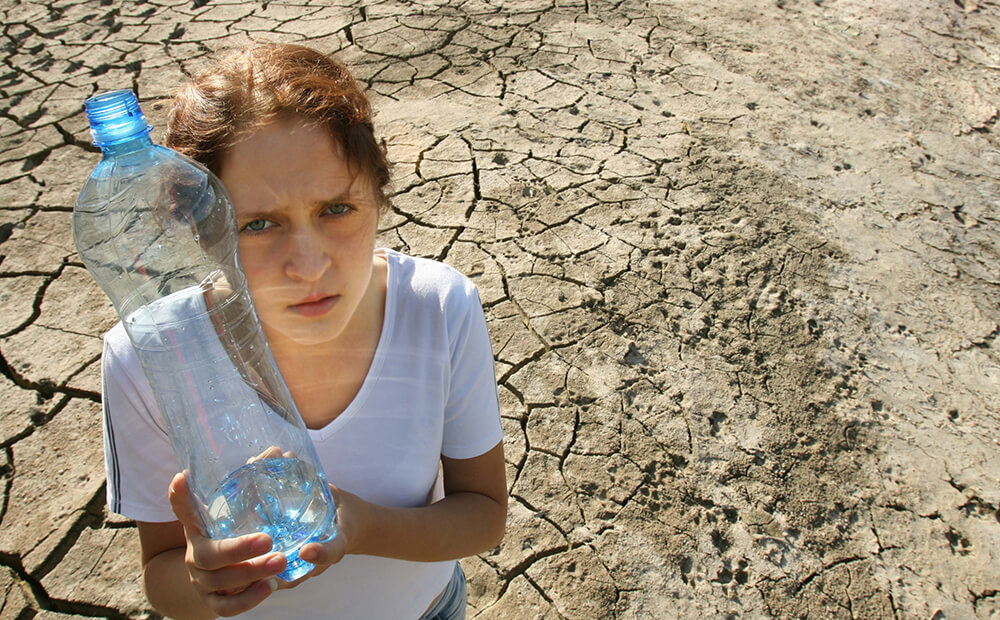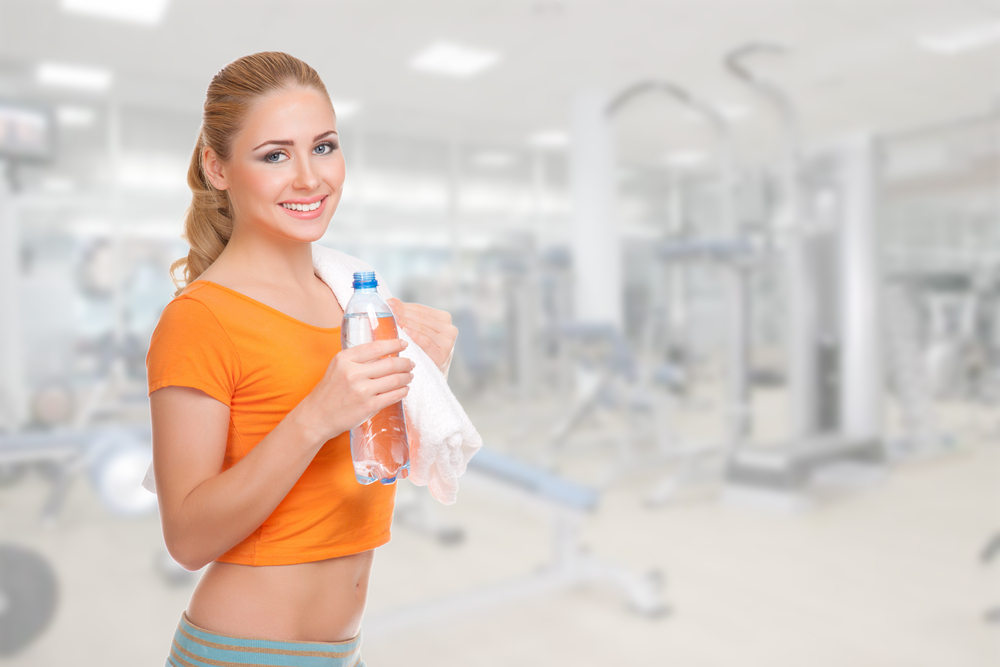
Since winter is wrapping for most of us with little children or educators, going into spring and summer, and soon vacationers will be taking advantage of the sun and beaches while white pants become a trendy wardrobe staple. The strong sun, hot temperatures and humid atmosphere will be upon us. Especially to those who are busy with children or pets, multi-tasking several "to-do" items off our never ending list, we may find ourselves more tired, drained, sun beaten, hot and yes, dehydrated! If you are thirsty, common sense tells you to get a drink. Did you know that dehydration has already begun to set in by the time your brain sends the signal that you need a drink. That is why it is so important to get your fill of clear liquids (water is best) prior to physical activity. This goes (especially so) for your little ones, too! It is critical to overall good health to drink water regularly throughout the day, even when the sun is not shining outside and the season is not summer. Causes of dehydration go far beyond hot-weather activity. When drinking water is a part of your daily routine, the risks for dehydration – a serious condition that can turn deadly, can be prevented. The Mayo Clinic reports that adults lose more than 10 cups of water in a given day, just by taking part in everyday activities, and failure to replace that water, may place your health at risk.

Aside from the hydration necessary for our bodies to sustain life, water also provides a vehicle for other nutrients called electrolytes. Electrolytes include minerals such as sodium, potassium and calcium. Water helps disseminate these minerals throughout the body and into blood, tissue and organs. It is necessary for lubricating joints, and is a huge part of blood, digestive liquids, helps to transport nutrients, and rids the body of waste. Our bodies are made up of 70 percent water, and needs about a dozen 8-ounce glasses of water a day to keep the basic systems running efficiently.
Diarrhea can be particularly dangerous, resulting in a rapid loss of water and electrolytes. A fever will also deplete the body of necessary fluids. As the body heats up, it uses its own water supply to cool down, resulting in the loss of water. Illness is a common precursor to dehydration.
Burn victims will lose their body’s natural hydration at an alarming, even deadly rate because the body tries to repair the damaged skin with its fluids. The most obvious way to lose water is by sweating, but we lose liquids through breathing, as humidified air leaves the body, urinating or bowel movements. Frequent urination can rid the body of fluids quickly as well. The onset of diabetes can cause frequent urination, which may go unnoticed by even adults. Two of the most immediate signs of diabetes are an increase in thirst and an increase in urination. Sometimes, frequent urination is the result of medications that act as a diuretic, causing the body to expel water through urination. Excessive intake of caffeinated drinks, such as coffee or soda, won’t work to keep a body hydrated. Conversely, they may actually cause the body to lose more fluids, as they are diuretics.
The most obvious way to lose water is by sweating, but we lose liquids through breathing, as humidified air leaves the body, urinating or bowel movements. Frequent urination can rid the body of fluids quickly as well. The onset of diabetes can cause frequent urination, which may go unnoticed by even adults. Two of the most immediate signs of diabetes are an increase in thirst and an increase in urination. Sometimes, frequent urination is the result of medications that act as a diuretic, causing the body to expel water through urination. Excessive intake of caffeinated drinks, such as coffee or soda, won’t work to keep a body hydrated. Conversely, they may actually cause the body to lose more fluids, as they are diuretics.
Sweating is the body’s cooling mechanism and kicks in when it becomes overheated, releasing fluids through the skin. Note the importance of water consumption when sweat is being lost exercise or in hot and humid weather. By replacing the water your body loses every 15 minutes will keep dehydration risk minimal and body functioning optimal.
The inability to drink adequately is the other potential cause of dehydration. Whether it is the lack of availability of water, intense nausea with or without vomiting, or the lack of strength to drink, this, coupled with routine or extraordinary water losses can compound the degree of dehydration
The signs and symptoms of dehydration often mimic that of general illness, so it is important to pay attention to early warning signs.
⚠ Thirst
⚠ Dry mouth
⚠ Dizziness
⚠ Lightheadedness (especially when standing)
⚠ Headache
⚠ Nausea
⚠ Confusion
⚠ Muscle cramps and weakness
⚠ Heart palpitations
⚠ Irritability
⚠ Low blood pressure
⚠ Decreased urine output
⚠ Lack of sweating
⚠ Little or no urination (or urine that is dark in color)
⚠ The eyes stop making tears
⚠ Sunken eyes
⚠ Fever
⚠ Coma
⚠ Organ failure
⚠ Possibly death
Everyone has the potential to fall victim to dehydration by virtue of the busy lives most people lead. Consistently drinking six or eight ounces of water a few times throughout the day may not be convenient or seem important to most people or part of their daily practice, but it definitely should. Children, (especially active ones who like to play outside), people who are elderly and even teens are at higher risk for dehydration because they may not realize their bodies are suffering from lack of fluids until the damage has already begun. Generally, people whose bodies have less fat and weight to store water may begin to be dehydrated earlier than those with higher body weights. *It is important to note that sodas/soft drinks, tea, and coffee are not the same as water intake, as they are diuretics and conversely increases the body’s dehydration risk.

People who exercise for long periods of time (such as marathon runners, cyclists and mountain climbers) run a dangerously high risk for dehydration. Simply put, the body has a hard time keeping up with the demands of keeping itself hydrated under lengthy, stressful conditions even in healthy bodies. The more strenuous the exercise, the more quickly moisture leaches from the body. The situation is exacerbated when activity takes place in high temperatures. Proper nutrition is key here and serious athletes must be well informed and in tune with their bodies in order to prevent dehydration and maintain optimum health. People who work outside for long periods of time run similar risks. To prevent dehydration, drinking before, during and after exercise is advised.
Dehydration can be deadly for older people, who are at risk for several reasons.
First, people who are elderly tend to have lower body weights, making it more difficult for their bodies to hold and process liquids.
Second, their lifestyles are often such that they may not eat regularly (or even often enough because of inadequate access to food) and consequently may neglect their diets.
Various medical conditions, frequent illness and medications associated with aging may also increase the risk of dehydration. The biological functions of the aging body (for example, how it regulates heat and stores water) predispose them to dehydration as well.
According to Mayo Clinic, more than 1.5 million children die from dehydration each year, and most of them are under 1 year old. Very young children who cannot communicate how they are feeling with words are extremely vulnerable to dehydration, particularly during periods of illness. An infant with an ear infection may resist eating and drinking for hours or even days, setting the stage for dehydration as well as a host of other health problems. Parents and caregivers need to be vigilant about the liquid intake of children, especially babies, to prevent dehydration.
The best defense against dehydration is, of course, prevention. When you know you’ll be exercising a lot, drink water at least 20 minutes before activity to give your body a good base. It’s important to note that dehydration can occur even in cold weather. While most people associate dehydration with the hot summer months, extreme cold can have the same taxing effects on the body, putting it at risk for loss of precious body fluids. Other liquids can provide hydration, although water is certainly the best source. Many foods, especially fresh fruits and vegetables, provide a good amount of water.
Green grapes and watermelon, both popular fruits for warm summertime meals, can provide an extra measure of protection against dehydration, especially for children. Sugar-free Popsicles are another good way to get liquids into children when it becomes difficult to get them to drink water. When mild dehydration is apparent, drink water or a clear liquid. If symptoms persist or worsen, seek a medical professional.
Meanwhile, for people who are intent on enjoying the sun, 8 ounces of water every hour is the recommended intake for people who are spending time in the sun. Remember to avoid sugary sodas, soda with caffeine and alcohol; they will make the potential for dehydration worse, not better. Staying out of the sun whenever possible will certainly lessen the risk for dehydration. If dehydration and sun exposure are combined, seek medical attention. Symptoms may worsen over a matter of hours. Make water intake a habit; your body will thank you.
Resources: Mayo Clinic, WebMD, AARP, MedLine Plus
